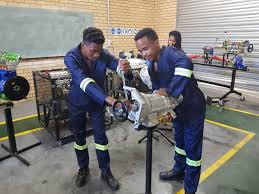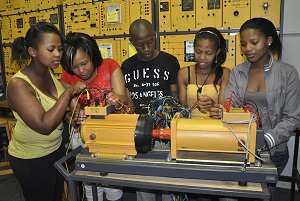Experts from Technical and Vocational Education and Training (TVET) Authorities from three EAC countries have started a process of coming up with a harmonized curriculum for the region.
The harmonization supported by the East Africa Skills for Transformation and Regional Integration Project (EASTRIP) funded by World bank and is spearheaded by Kenya, Tanzania and Ethiopia to improve the quality of TVET programmes among member states and promote regional integration.
Speaking to KNA during the meeting in Nairobi, Director Technical Education at the Ministry of Education Tom Mulati said harmonization of skills through the curriculum will target critical sector like the manufacturing, transport, energy, ICT and Blue economy.
“we are harmonizing the qualifications across the region, harmonizing the curriculum and also harmonizing the occupational standards across the region and this will help the TVET institutions and graduates be able to have greater mobility across the region in terms of employability and even in terms of training”, he said.
Mulati explained that once the curriculums are harmonized , the examinations and mode of assessment will also be harmonized making it easy for the region.
“ The outcome of the harmonized curriculum, occupational standards and harmonized qualification frameworks will see the level of qualifications in Kenya equal to those in Ethiopia and also Tanzania “, he said .

The Director further said that they are involving the industry in the process in order to get it right in terms of when the graduates complete their education they are able to get into the industry whether self or gainful employment in an easier way.
Mulati confirmed that the Inter Council University of East Africa ( IUCEA)will be spearheading the process doing all the baseline surveys and information gathering .
In Kenya institutions that have been earmarked in starting off the project are the Meru National polytechnic, Kenya Coast national polytechnic , Kenya institute of building and highways training and Kisumu national polytechnic .
Deputy Executive Secretary of IUCEA , Mike Kuria said their aim is to major on three things namely improve access for education especially for women at the technical level who in this field representation is quite low, improve the quality of education and also employability.
“ The population in the country stands to around 47 million people and 60 percent of the people are below 25 years of age and employment rate among those people is very high and this is why this project is trying equip the students with the right skills so that they are able to find employment and hopefully we can reduce employability through giving students skills that are relevant for the labour market”, he said .
The project through regional integration Kuria will see students be able to move from move from one country to the other and their qualifications accepted because what currently there is so much imbalance of skills in the different countries
Dr. James Jowi, Principal Education officer art the East Africa community (EAC ) Secretariat said at EAC they are undertaking harmonization of education curriculums structures, examinations standards and quality and one of the cycles they are harmonizing is the TVET sector.
“We have already harmonized, primary, early childhood, teacher education, and now finalizing on the TVET education “, he said that the reason behind the harmonization is to respond to youth employability in the region.
Standardization of TVET Dr. Jowi said will further allow facilitation mobility of students and professionals that have been trained within the TVET sector.
“What this standardization means for the youth in the EAC is that there will be increased chances for access and once standardized, students can learn in other countries have internship opportunities , employability and also sharing of teachers through even Centre of excellence”, he said
Richard Muteti CEO of Kenya National Federation of Jua Kali associations said project is bringing in a transformation approach towards enhancing the quality and accessibility of the TVET sector in EAC.
One of the issues that has been hindering the growth of small businesses and especially the artisans is technology in modern skills, so under this programme focusing on enhancing the quality and accessibility there is a lot of industry involvement.
Once the TVET integrates with the jua kali sector and through harmonization Muteti noted that the Jua Kali sector will be able to get certificates through the CBET and be recognized in the region and seeing lot of exportation of labour
“The sector currently is producing around 800,000 jobs per year , and once we get the regional opportunity we will jump to 2 million’, he said noting that involvement of the EAC in the IUCEA is upgrading their thinking and mindset and soon people will see a big difference in how jua kali sector is manufacturing their products.
The regional TVET meeting is the initial step towards the development of the policy and guidelines of TVET. EAC has witnessed increased demand for technical and vocational skills as a mean of technology transfer and upgrading skills for workers.
By Wangari Ndirangu and Diana Wambulwa




